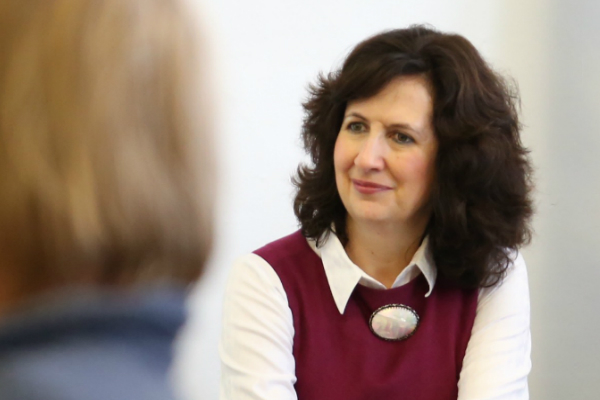
Jane considers tokenism in representing deaf people.
Everyone now knows more about being deaf, thanks to Rose Ayling-Ellis. Her regular role on one of TV’s most popular soaps plus her triumph on the BBC’s Strictly Come Dancing has brought deafness into the public eye like never before. This increased awareness and Rose’s personal advocacy also helped the new BSL Act through Parliament – brought by Rosie Cooper, MP – herself a child of Deaf Adults (CODA).
This is all great. And welcome. But do we now know what it is like to be deaf?
In her Edinburgh Festival McTaggart lecture, Rose pointed out that we do not. She described the vicious circle in which she felt trapped as a young actress – not being able to ‘break into’ the education and opportunities you need to even get started or recognised. This was, she said ‘a lonely, upsetting journey’. She experienced what I call ‘pre-barriers’ – things no hearing person would even imagine existed nor would ever have to consider. Rose highlighted that lack of lived experience of deafness among scriptwriters on her series means that she is directed to behave in a way that doesn’t reflect reality for a Deaf person. She gives the example of her character apparently perfectly lipreading someone across a crowded bar; anyone deaf would tell you - in reality, it wouldn’t happen.
When more people with lived experience of an issue work in that area, there is less risk of misleading stereotypes or tokenism. There is a social movement in the UK called ‘LEx leadership’ or lived experience leadership advocating for this. Adapting our systems and assumptions to make space for this type of leadership could produce significant benefits for society linked to greater innovation, relevance and effectiveness, even before you start to look at the impact on the leaders as individuals and role models for others.
Deaf contribution
I recently attended a celebration for deaf professionals who use communication support including lipspeakers, interpreters and deaf-blind interpreters. At the modest-sized event there were deaf people carrying out a dazzling array of professional roles:
- Accountant
- Advocate
- Aeronautical engineer
- Civil servant handling Parliamentary Questions on foreign policy
- Civil service Team Leader
- Deputy Head of a junior school
- Director of a social enterprise (Ed: Who could this be?)
- Dot com manager for a large supermarket
- Food warehouse operative
- International charity manager
- Occupational therapist
- Police Support Administrator
- Small business owner
- Trainer for deafblind guiding and communication
- Water safety scientist.
That such a range of skill and knowledge was represented at a small gathering illustrates something one deaf commentator wrote: ‘When will people realise that deaf people can do anything – except hear?’.
When you want to show the reality of our lives and work as deaf people, why not draw on our deep pool of experience to do so?
Trust those who have experienced it and tell it like it is; the results could be far more interesting than you would guess.
Are you interested in training or coaching for yourself or your organisation with people with lived experience of exclusion? Why not arrange a chat?